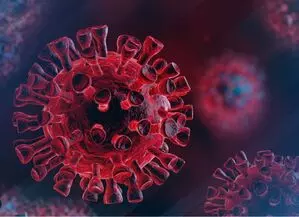
Reason behind long-lasting Covid symptoms identified
text_fieldsNew Delhi: A new study on Tuesday indicated that damage to the brainstem -- the brain’s ‘control centre’ -- is behind the long-lasting physical and psychological repercussions of severe Covid-19 infection.
The detrimental effects of Covid were observed in the brains of thirty individuals who had been hospitalised early in the pandemic due to severe infection. The researchers from the Universities of Cambridge and Oxford employed ultra-high-resolution scanners, which can see the living brain in great detail.
Their results, published in the journal Brain, revealed how SARS-CoV-2 affects brainstem regions associated with breathlessness, fatigue, and anxiety.
“The brainstem is the critical junction box between our conscious selves and what is happening in our bodies,” said Professor James Rowe, from the Department of Clinical Neurosciences, who co-led the research.
“The ability to see and understand how the brainstem changes in response to Covid will help explain and treat the long-term effects more effectively,” Rowe added.
Fatigue, breathlessness, and chest pain were the troubling long-lasting symptoms among several patients admitted to the hospital early in the pandemic.
The team hypothesised these symptoms were partly the result of damage to key brainstem nuclei, which persists long after the infection has passed.
The study found that multiple regions of the brainstem -- the medulla oblongata, pons, and midbrain -- showed abnormalities consistent with a neuroinflammatory response.
These appeared several weeks after hospital admission and in brain regions responsible for controlling breathing. The changes in the brainstem were also linked with increased depression and anxiety among Covid survivors.
Dr Catarina Rua, from the Department of Clinical Neurosciences, said the effects “are over and above the effects of age and gender, and are more pronounced in those who had had severe Covid-19”
The results may also help decode other conditions associated with inflammation of the brainstem, like multiple sclerosis and dementia, the team said.

















